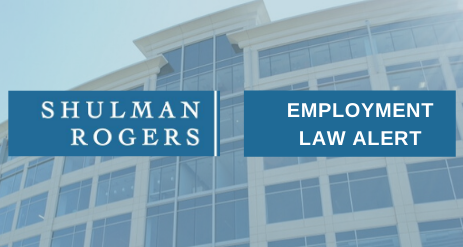
The Virginia Overtime Wage Act (VOWA) was signed into law on March 20, 2021, and will go into effect on July 1, 2021. Employers need to become familiar with the requirements of VOWA, as there is significant risk of liability for noncompliance. VOWA differs from and expands upon the Fair Labor Standards Act (FLSA). Specifically, VOWA requires use of a different standard for regular rate calculations, provides for greater damages and extends the statute of limitations for overtime claims.
Regular Rate Calculation Results in Larger Amounts of Overtime Owed
VOWA defines the regular rate for hourly workers as the hourly rate of pay plus any other non-overtime wages paid or allocated for that workweek, excluding any applicable federal exclusions, divided by the total number of hours worked in that workweek. For salaried workers and other workers paid on a regular basis, the regular rate is one-fortieth of all wages paid for the workweek. Significantly, this new standard precludes employers from paying nonexempt employees a fixed salary that covers straight-time wages for hours in excess of 40 hours in a workweek, or from using the fluctuating workweek method of calculating overtime that is allowed under the FLSA.
VOWA’s regular rate calculation results in a greater regular rate as well as a greater overtime rate. Under VOWA, the overtime rate is one and one-half times the worker’s regular rate; employers cannot use the half-time rate as would be allowed for use of the fluctuating workweek under the FLSA. As illustrated in the example below, the calculation required under VOWA results in larger amounts of overtime pay owed.
Example: An employee works 50 hours in a workweek and is paid a salary of $1,000 a week.
Under the VOWA regular rate calculation, the employee’s weekly pay is divided by 40 hours, and overtime pay is calculated using a rate of one and one-half multiplied by the overtime hours.
$1000 ÷ 40 hours = $25/hour regular rate
One and one-half times the $25/hour regular rate = $37.50/overtime hour
10 overtime hours x $37.50/hour = $375 in overtime owed
By contrast, under the FLSA, for employees paid a salary covering straight time wages for hours over 40 hours in a workweek, the weekly pay is divided by the total number of hours worked that week ($1,000/50 = $20/hour regular rate), and overtime pay is then calculated using a half-time rate ($10/overtime hour). So, only $100 in overtime pay would be owed – for the same 10 hours of overtime.
Increased Liquidated Damages
Under VOWA, employers are strictly liable for double damages, and may be liable for triple damages if the employer had actual knowledge that it failed to pay the overtime wages and acted in deliberate ignorance or reckless disregard as to whether it was paying all overtime wages owed. This is different from the FLSA, where employers have a defense to double damages if the employer can show it acted in good faith, having had reasonable grounds for believing its actions to be in compliance with the FLSA. Virginia employers will still have that defense but only as to treble/triple damages – not against liquidated “double” damages.
Increased Statute of Limitations
VOWA increases the statute of limitations for unpaid wage claims to three years. This is greater than the two-year statute of limitations for FLSA claims, which is only extended to three years for willful violations. The longer statute of limitations under VOWA increases liability for overtime violations, and plaintiffs will now be able to go back three years prior to the date of the claim (instead of just two years), potentially increasing their damages significantly.
Takeaway
VOWA’s regular rate calculation results in greater overtime pay owed, and the impact of this is compounded by both the increased liquidated damages and an increased statute of limitations period. Employer liability could increase even more if claims are pursued by multiple employees, collectively, an option which was made available to Virginia employees under the 2020 amendments to the Virginia Wage Payment Act.
Most importantly, employers need to make sure that they are properly classifying employees as exempt or nonexempt and, then, must strictly comply with VOWA for nonexempt employees.
If you have any questions about this Alert, please contact the attorneys in the Shulman Rogers Employment and Labor Law Group.
The contents of this Alert are for informational purposes only and do not constitute legal advice. If you have any questions about this Alert, please contact the Shulman Rogers attorney with whom you regularly work or a member of the Shulman Rogers Employment and Labor Law Group.
Stay up to date with all the latest news and events.